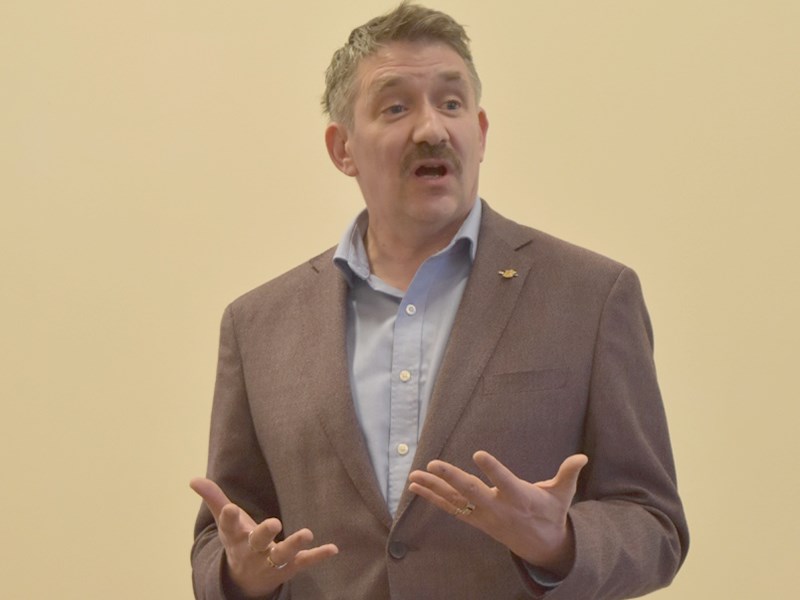Powell River Public Library hosted an electoral reform discussion on Saturday, May 26, where four speakers gave short talks.
Powell River-Sunshine Coast MLA Nicholas Simons could not provide any information as to what the provincial government is actually proposing but spoke in favour of proportional representation. Former MLA Gordon Wilson summarized the history of proportional representation in BC, which has been voted down twice before.
Powell River Regional District Electoral Area C director Colin Palmer had questions and noted that results of the government email survey on proportional representation in February were never released. Bill Smith from Fair Vote Powell River stated that 90 countries use proportional representation systems and three major western democracies use a first-past-the-post system: Canada, Great Britain and the United States.
The crowd surprised me. No young, working age or businesspeople. They were very senior citizens. Does no one care that the provincial government wants to fundamentally alter the way our democracy works?
Question period brought out the “I want my vote to count,” comments.
I have voted the same way for years and never had a representative in power. Too bad, that’s what happens when you vote for fringe parties.
What some really want is power for a party that can’t win an election. Unpopular parties favour proportional representation until they win an election, then they change their tune pretty fast. Just ask prime minister Justin Trudeau.
Some believe proportional representation forces parties to work together.
We have three parties holding seats in BC. One advocates prosperity through jobs and resource development. Another believes in big government, taxes and wealth transfer. The third party thinks resources should be left in the ground because the environment is more important than prosperity. Just how are these three supposed to work together?
In countries that have proportional representation, we see inconclusive elections, minority governments and party coalitions based on backroom deals. Fringe parties hold more power than they deserve by votes. Our own government is another example.
Do we want to give up regional MLAs for an MLA appointed by party executives? The MLA may not even be from the party the riding voted for.
Rural MLAs could all come from Vancouver. How is this government by the people? Not in my best interests.
Our system was refined over decades in Britain and improved by Canadian and American founding fathers. It is not a perfect system, but I would argue it is the best system out there.
All votes count now, even those that are unsuccessful. The people who don’t have a say are those who don’t vote.
The majority gets the government of their choice and that government rules for the benefit of all residents for a period of time. If the residents are happy, the government earns re-election. If not, we throw the bums out.
At the riding level, we can throw out an MLA who underperforms. We can’t do that if our MLA is appointed in Victoria.
We don’t know what the provincial government is planning. They have been very secretive about it. We know they think 50 plus one per cent is enough to justify proportional representation.
What if only 20 per cent of voters care enough to vote? I don’t want my future election laws decided by a bunch of geriatrics.
Why does the government propose a mail-in vote rather than at a polling station where the vote is controlled?
My thanks to the speakers, attendees and the library.
Randall J. Rohl is a retired Powell River resident.



